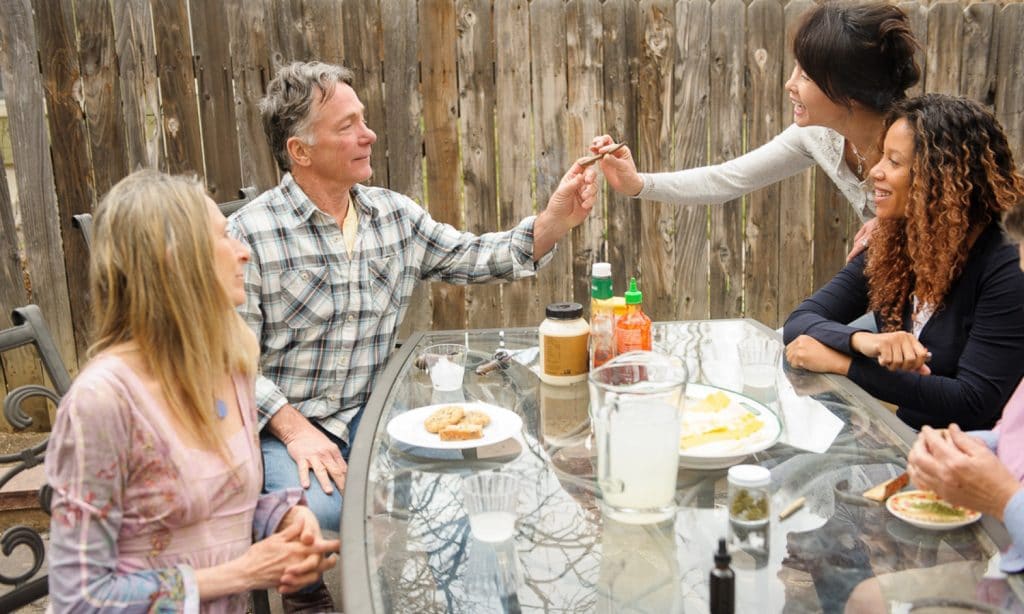No one has died from a marijuana overdose and there is no evidence of anything more lasting than embarrassment. That certainly is not the case with alcohol.
Disclaimer: The views expressed in this article solely belong to the author and do not necessarily represent those of The Fresh Toast.
The pandemic has produced a number of social changes that we hope may last. An online Harris Poll sponsored by marijuana company Curaleaf found that 45% of cannabis consumers age 21 and up have replaced or reduced their alcohol consumption with marijuana since the beginning of the coronavirus pandemic, and one-third of those who use cannabis recreationally prefer cannabis to drinking alcohol. Yes, marijuan is replacing alcohol during the pandemic.
Half of the respondents (50%) said they increased their use because cannabis helped them relax, and 48% said they did so to help them sleep. Of those who said they use marijuana recreationally, a third (33%) said that they prefer cannabis over alcohol.
RELATED: Alcohol Takes Backseat To Cannabis As Intoxicant Of Choice
Interestingly, parents are actually turning to cannabis at higher rates than those without children. Think of the children!
Really. “Parents struggling with alcoholism may be surprised or concerned after reading about the impact their addiction can have on their children now and through adulthood.”
SEE: The Effects of Parental Alcoholism on Children
Another recent poll commissioned by the Glass House Group found that a majority plan to replace alcohol with cannabis.

DrugWarFacts.org reports, “In 2017, 140.6 million Americans aged 12 or older were current alcohol users, 66.6 million were binge drinkers in the past month, and 16.7 million were heavy drinkers in the past month. Thus, nearly half of current alcohol users were binge drinkers (47.4%), and 1 in 8 current alcohol users were heavy drinkers (11.9%). Among binge drinkers, about 1 in 4 (25.1%) were heavy drinkers.”
As of 2015 in the United States, about 17 million (7%) of adults and 0.7 million (2.8%) of those age 12 to 17 years of age are affected. Alcoholism is most common among males and young adults.

crotography/Getty Images
Alcoholism is also a major public health problem. A 2018 National Institute of Health study “shows steep increase in rate of alcohol related ER visits.” Also:
“Increases were larger among females than males, providing more evidence of narrowing gender gaps in alcohol-related harms in the U.S.
The rate of alcohol-related visits to U.S. emergency departments (ED) increased by nearly 50 percent between 2006 and 2014, especially among females and drinkers who are middle-aged or older, according to a new study conducted by researchers at the National Institute on Alcohol Abuse and Alcoholism (NIAAA), part of the National Institutes of Health. The study findings are available online in the journal Alcoholism: Clinical and Experimental Research.
“In just nine years, the number of people transported to the ED annually for medical emergencies caused or exacerbated by alcohol increased from about 3 million to 5 million,” said NIAAA Director George F. Koob, Ph.D. “These findings are indicative of the detrimental effects that acute and chronic alcohol misuse have on public health, and the significant burden they place on our healthcare system.”
The rate of all alcohol-related ED visits increased 47 percent between 2006 and 2014, which translates to an average annual increase of 210,000 alcohol-related ED visits. The rate of visits for acute alcohol consumption rose by 40 percent, and the rate of visits related to chronic alcohol consumption increased 58 percent. These increases far outpaced changes in the number and rate of ED visits for any cause during the years studied. The NEDS data also showed that total annual costs of alcohol-related visits increased from $4.1 billion to $15.3 billion during this time.
Taken together, these findings highlight the growing burden of acute and chronic alcohol misuse on public health and underscore the opportunity for healthcare providers to conduct evidence-based interventions, ranging from brief interventions to referral to treatment, during alcohol-related ED visits.”

Meanwhile in the UK, the Telegraph reports, “Alcohol-related hospital admissions have risen by 45 per cent in a decade, new figures show, as charities and MPs warn of the dangers of further budget cuts to treatment services. In 2018-19 there were 1,261,907 hospital admissions where the primary or any secondary reason for admission was linked to alcohol in England, compared to 863,300 in 2008.”
Unfortunately, the UK is still in the grip of Reefer Madness, so cannabis is not as easy an alternative to alcohol.
SEE: Bizarre History of UK Cannabis Prohibition
Now let’s consider a major point about ED visits. Not all visits are equally serious. There has been an increase in ED visits in states that have legalized marijuana. The primary cause of these increases has been edibles. When marijuana was illegal it could be dangerous to seek medical help, so now people are much more likely to go to the ED.
No one has died from a marijuana overdose and there is no evidence of anything more lasting than embarrassment. That certainly is not the case with alcohol.
ALSO SEE: British National Health Bureaucrats Refuse To Pay For CBD For Children With Severe Epilepsy
Richard Cowan is a former NORML National Director and author of Pet CBD Tinctures Vs CBD Treats.


